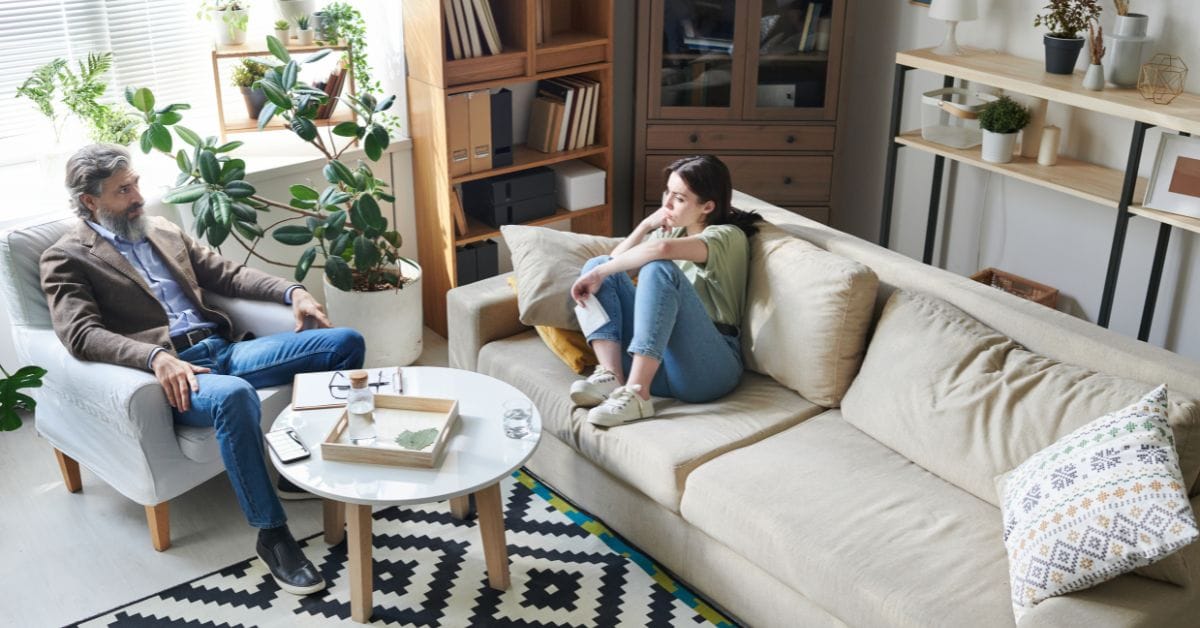As people grow older, their bodies handle alcohol very differently. What may have felt manageable in earlier years can become dangerous with age. The liver becomes less efficient, meaning alcohol stays in the bloodstream longer. Muscles shrink, fat stores increase, and metabolism slows. All of this leads to higher alcohol concentration in the body, even with small amounts.
Older adults also tend to have reduced water content in their bodies. This makes dehydration more likely, especially when drinking regularly. These physical shifts are subtle but serious. Alcohol can affect balance, mobility, and memory in ways that often go unnoticed until there’s a fall, confusion, or another health scare.
How Alcohol Affects Medication and Chronic Conditions

One of the biggest concerns for older drinkers is how alcohol interacts with medication. It’s not just prescription drugs — even over-the-counter pills can mix badly with alcohol. Blood pressure tablets, cholesterol medication, painkillers, and sleeping aids can all lead to side effects when alcohol is involved.
Beyond medication, alcohol also aggravates chronic conditions. Diabetes, heart problems, arthritis, and even common digestive issues can worsen when drinking continues. The immune system also weakens over time, and alcohol can drag it down even further.
Emotional Triggers Behind Alcohol Use in Seniors
Loneliness, Grief, and the Need for Coping Mechanisms
People don’t always start drinking more because they enjoy it. Often, it’s about coping. Many seniors have lost spouses, friends, or even children. Retirement brings long days with less structure. Friends may have moved away or passed on, and the home that was once full of noise can become quiet and isolating.
This loneliness doesn’t always show on the outside. But it creates a gap. That gap gets filled with something — and often, it’s a glass of wine, a couple of beers, or even stronger drinks. Not necessarily to get drunk, but just to feel something. And that habit, repeated daily, becomes dependency.
Retirement and the Shift in Routine
Work provided more than just income. It gave routine, structure, social contact, and purpose. When that ends, days stretch out. Without a reason to get up or places to be, many turn to alcohol just to pass the time. That afternoon drink slowly creeps earlier. The drink at night becomes two. Weekends blend into weekdays.
Even those who looked forward to retirement can struggle. The shift feels subtle but can change mental patterns quickly. A hobby might help. But for those without a support system, alcohol feels easier. And over time, it becomes part of the routine itself.
When Drinking Becomes a Habit Rather Than a Social Act
Drinking used to be about celebration or company. For some, it no longer needs a reason. It’s part of lunch, part of dinner, and part of winding down. That shift from social to habitual is dangerous — and it happens quietly. It doesn’t take large quantities. Just consistency.
The problem is that it doesn’t look like a problem. It’s a glass here, a nip there. But when alcohol becomes something the body and mind expect, stopping is no longer simple. That’s when support becomes necessary.
Recognising the Signs of Alcohol Dependence in Seniors
Why the Warning Signs Are Often Missed
Older adults are often seen as responsible and settled. So when alcohol becomes an issue, it doesn’t raise the same red flags. Family might think it’s just part of retirement. Friends may even encourage it during visits. But dependency doesn’t always look like stumbling or slurring. It can look like forgetfulness, mood swings, or withdrawal from normal activities.
Some signs are brushed off as “just getting older” — like unsteadiness, low mood, or confusion. But they could point to something more serious. That’s why awareness matters.
Behavioural and Physical Symptoms That Are Often Overlooked
Keep an eye out for these signs: changes in appetite, sudden weight loss, sleeping problems, or irritability. Seniors may also start cancelling plans or avoiding calls. They might forget things often, even if their memory used to be sharp.
Bruises from falls, missed medication, and poor hygiene can all be indirect signs. It’s not always obvious. And unless someone looks closely, alcohol might not even come up in the conversation.
The Role of Family Members and Carers
Support from family or carers can make all the difference. But it needs to come from a place of patience. Accusations or guilt won’t help. Older adults may feel embarrassed or even ashamed. They might say they’re “too old” to change. But support — consistent, non-judgemental support — can get through eventually.
It starts with noticing the signs, then opening up a calm and honest conversation. The goal is not to push. It’s to understand. Once that happens, next steps can follow.
The Importance of Age-Appropriate Treatment Approaches
Why Seniors Need Different Rehab Plans
Older adults don’t respond the same way younger people do in treatment. Their bodies are weaker. Their recovery is slower. They also need more help with things like balance, sleep patterns, and emotional support.
Treatment needs to be paced properly. Aggressive detox or strict routines can backfire. Instead, plans need to consider physical limitations, comfort, and trust. Age-appropriate care means recognising that the needs of a 70-year-old are not the same as those of someone in their 30s.
How Physical Health Impacts Recovery Strategies
Older bodies take longer to recover. Detox can be tough, especially if someone has liver damage or other health issues. They might also need extra help getting around or managing other conditions.
That’s why treatment isn’t just about stopping alcohol. It’s about treating the body gently, giving it enough rest, food, and medical support. Physical rehab may even be needed alongside alcohol rehab. The two go hand in hand.
Mental Health Support That Actually Works
Seniors face different mental challenges. Many have untreated depression or anxiety. Others carry years of emotional pain that never got addressed. Treatment needs to include therapy that speaks their language.
This means focusing on current feelings, not just the past. It means helping them build confidence again. And it means including tools that are realistic — not overly technical or abstract.
Creating Safe and Comfortable Environments for Treatment
A calm, respectful environment matters. Bright hospital-style rooms can feel cold or even scary. Seniors respond better in homely, peaceful settings. Chairs they can sit in comfortably. Staff who treat them kindly. No noise, no stress.
Comfort doesn’t mean luxury. It just means being thoughtful. That creates the kind of space where real recovery can start.
Inpatient vs Outpatient Programmes for Older Adults
Understanding the Differences in Recovery Settings
Inpatient rehab involves staying at a facility. Outpatient means attending sessions but sleeping at home. Both have pros and cons. The right choice depends on health, home life, and personal preferences.
Inpatient is more structured. It’s better for those who need medical help, have mobility issues, or live alone. Outpatient gives more freedom but requires strong discipline and family support.
When a Residential Setup Is the Better Option
A full-time stay often helps those who need supervision or who have developed serious health issues. It’s also useful for people with poor nutrition, who forget medication, or who drink throughout the day. In these cases, removing them from their usual environment helps break the habit.
Situations Where Home-Based Programmes Make More Sense
Some people do better at home — especially if they have strong family support. Attending a clinic during the day and returning home at night works when someone is stable, mobile, and motivated. But this still requires regular monitoring, transport, and a sober space at home.
The Role of Group Support for Seniors
Why Peer Support Is So Important Later in Life
It’s one thing to talk to a doctor. It’s another to talk to someone who understands. Older adults often feel judged. Group support removes that wall. It shows them they’re not alone. And when others their age speak openly, it becomes easier to follow suit.
It’s not about pressure. It’s about comfort. Sharing stories, frustrations, and wins with people who truly get it makes recovery feel more manageable.
Building Trust and Openness in Group Settings
Trust takes time. Especially for people who have lived long lives with many layers. But with regular meetings, familiar faces, and respectful conversation, that trust grows. Group members start opening up, helping one another, and giving gentle support.
This helps people speak about things they’ve never said before — and that kind of honesty is powerful.
How Group Sessions Can Improve Long-Term Results
The biggest challenge after rehab is staying sober. Group support doesn’t just help during treatment. It keeps people connected after. Weekly or monthly sessions create accountability. They also provide a place to talk when temptations return.
For seniors, it can be the difference between staying sober or slipping back.
Therapy Techniques That Work for Older Adults
Practical Therapy Methods That Encourage Change
Therapy needs to feel real and practical. Long lectures or complicated worksheets don’t work. Simple conversations, gentle encouragement, and small changes are better. Tools like daily journals, calming exercises, or even just a routine of structured chat can help change behaviour over time.
Using Talk Therapy to Reframe Thoughts Around Alcohol
Alcohol often becomes tied to identity. Therapy helps separate that. It shows that drinking is something they did, not who they are. Talking through regrets, pain, or grief slowly breaks those connections. It creates room for new patterns.
How Movement and Activities Can Support Sobriety
Walking, light exercise, gardening, or even group classes can do wonders. These aren’t about fitness — they’re about stimulation, routine, and joy. Movement keeps the mind engaged and gives purpose to the day.
Nutrition and Physical Wellbeing During Recovery
Why Diet Matters More for Older Adults in Recovery
Many seniors in rehab are undernourished. Alcohol takes away appetite and affects nutrient absorption. A healthy diet helps the body heal. This includes meals that are easy to digest, rich in protein, and packed with vitamins.
Managing Malnutrition, Dehydration and Medication Side Effects
Dehydration is common. So is low blood sugar. Meals need to be balanced. Drinking enough water, having regular snacks, and adjusting medication all play a part in stabilising the body.
Exercise Routines That Suit Senior Bodies
Exercise doesn’t need to be intense. It needs to be gentle. A short walk, stretching, or swimming can improve mood and strength. Movement improves sleep, reduces stress, and helps with coordination.
Managing Underlying Mental Health Conditions
How Depression and Anxiety Are Often Tied to Alcohol Use
Many seniors drink to manage sadness, loneliness, or anxiety. But alcohol only worsens those feelings. Over time, it rewires the brain to depend on it. This cycle is hard to break unless both alcohol use and mental health are treated together.
The Need for Dual Diagnosis Approaches
It’s not just about stopping alcohol. It’s about understanding why it started. Treating depression or trauma alongside alcohol issues gives better results. Ignoring one part of the problem just delays real progress.
Monitoring and Treating Mental Health Without Relying on Medication Alone
Medication isn’t the only answer. While it helps some, others prefer non-medical options. Talk therapy, mindfulness, activities, and support groups can all improve mental health. The goal is to give tools that work — and that feel manageable.
Maintaining Sobriety After Rehab
Building a Daily Routine That Supports Ongoing Sobriety
Habits matter. Getting up at the same time, eating proper meals, doing small tasks — these things add structure. And structure keeps the mind steady. Without it, old habits creep back.
What Happens When Old Habits Try to Return
Relapse isn’t always dramatic. It starts with thoughts. Then small behaviours. Then excuses. Having a support plan in place — someone to talk to, a number to call, or a group to visit — helps stop things before they slide too far.
The Importance of Purpose, Structure and Accountability
Everyone needs purpose. Even small ones. Whether it’s watering plants, helping in the kitchen, or chatting to a neighbour — purpose keeps people going. Combine that with structure and a few people who check in regularly, and you’ve got a solid base for staying sober.
What to Do When a Loved One Refuses Help
Common Reasons Seniors Push Back
Some don’t think they have a problem. Others are scared. Some think it’s too late to change. Others just don’t want to talk about it. These reasons are common — and they don’t make the person bad. They make them human.
How to Have the Conversation Without Conflict
Start simple. Don’t accuse. Don’t raise your voice. Be honest, but calm. Talk about how you feel, not what they’re doing wrong. The goal isn’t to win an argument — it’s to open a door.
When and How to Involve Medical Professionals
If health is at serious risk, you may need to involve a doctor. Choose someone the person trusts. Don’t surprise them. Explain why. Offer to go with them. Keep them in control as much as possible. Respect matters.










